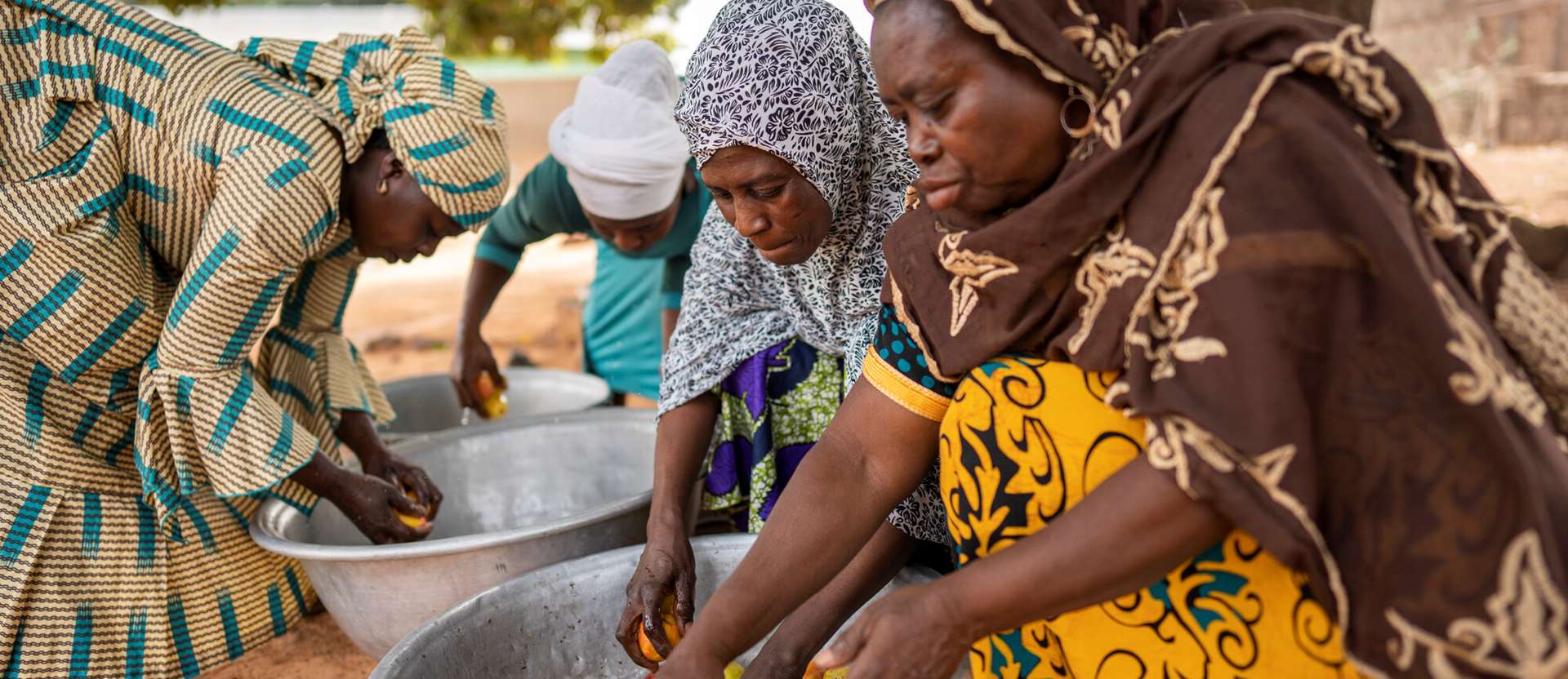
Resilient Women in Business
Meet the women of Ghana’s thriving enterprise groups...
Women are pivotal for our efforts to tackle poverty and restore the environment in Ghana. The welfare of women and their families is closely connected to the health of local natural resources, but why is this the case?
In this blog, we’ll explain, through the stories of several women we work with – Nsormabilah Thomas, Serina Sumani, and Gladys Galyuoni – peanut farmers from Ghana’s West Gonja District, who have been working to grow resilient incomes from their land.
We'll share some of the challenges they are facing, and you’ll learn how we're supporting these women, to ensure a brighter future for them and their families:



Our projects aim to support and champion women as key pillars in the fight against poverty and food insecurity. It is mostly women who are responsible for gathering and processing forest resources, and for improving living conditions, nutrition and schooling of their families. In Africa’s dryland regions, however, women face insecure rights, high levels of unpaid work, and unequal access to land, healthcare and education, making this responsibility more challenging.
Before starting work in a new area, Tree Aid collects data about local women’s challenges, so we can adapt our work, providing the right trees, tools and training to meet their needs.
At our cashew-growing project in Ghana, we found that many women like Gladys, Nsormabilah and Serina, felt lacking in agency and independence.
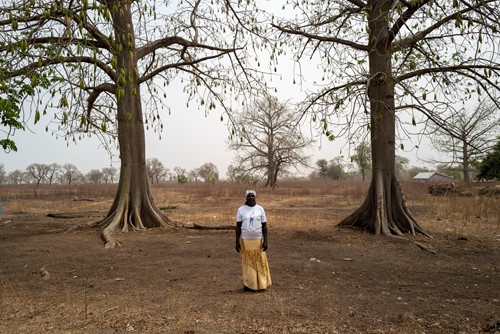
“We were heavily dependent on our husbands and sometimes they mistreated us…getting pocket money for the kids to go school was difficult. We struggled to get them one Cedi… we even struggled to get them house clothes.” - Nsormabilah Thomas
Erratic weather, lack of resources and poor soils means women like Nsormabilah have been struggling to earn their own income to pay for food, medicine and schooling. As a result, many women have a poor quality of life, and can feel anxious and lonely. As Gladys told us:
“I was always overthinking. I was lonely - sitting in the house and worrying. The men don’t normally have time for us… We were always quarrelling because of food matters and how to cater for the children – how to get their pens, books, uniforms – it was very difficult”
The solution – bringing women together through business:
To tackle these issues of poverty and isolation, our projects help bring women together to run their businesses, securing independence through collaboration. Village Tree Enterprise groups (VTEs) are collaborative business groups, which provide women with a much-needed support network and the opportunity to borrow money.
“If you are suffering, if you need money, you can go and ask, and the group will lend to you” – Gladys Galyuoni
Membership gives women the confidence to have a voice in their community, empowering them to make decisions and become less dependent on their husbands. As Wilson Azipagrah, one of our Ghanaian project officers explains, “they work together, so they're able to know each other's challenges, and then step in to help each other in time of need…”
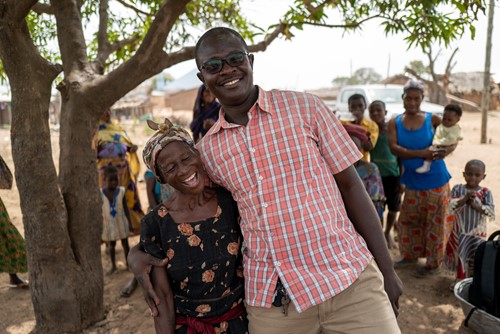 Image: Wilson Azipagrah with members of the community near Damongo, Ghana
Image: Wilson Azipagrah with members of the community near Damongo, Ghana
What’s more, Wilson told us, “working together enables them to have a very good bargaining power - it prevents [buyers] from coming to capitalize at a very low price”. By combining their bulk produce and negotiating as a unified group, they’re able to demand a fair price at market.
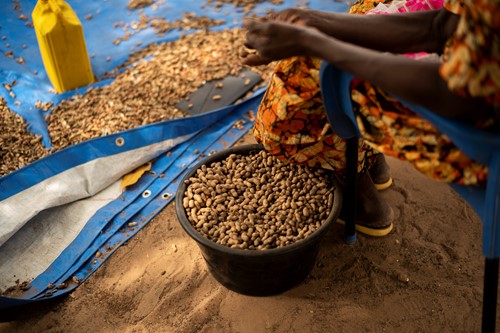 “We make more money if we sell as a group, so once we harvest, we bring all our groundnuts together and take it to Tamale or Techiman to sell. Those are much bigger markets than the ones we have here, so we get better value” - Serina Sumani
“We make more money if we sell as a group, so once we harvest, we bring all our groundnuts together and take it to Tamale or Techiman to sell. Those are much bigger markets than the ones we have here, so we get better value” - Serina Sumani

Bringing women together – Village Tree Enterprises:
In Ghana, VTE groups comprise of local women entrepreneurs selling products like groundnuts (peanuts) and honey. Throughout the project, local Tree Aid staff have arranged tailored training sessions to help with all aspects of their business, from seed to sale.
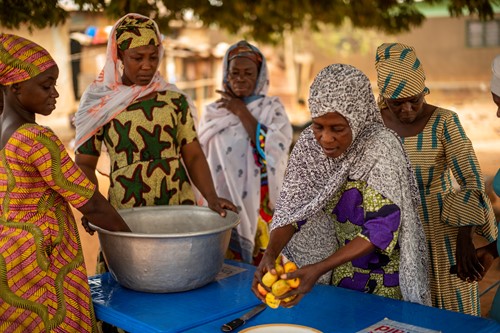
Serina, also a VTE member, told us about the financial benefits she’s seen since starting to farm and sell peanuts - “all the money I get now comes from the groundnuts – from our last harvest, we have stored much more than the 15 kilos we were originally given to plant”
Alongside peanuts, groups like Serina’s have also been learning to produce honey, from a number of beehives provided as part of the project.
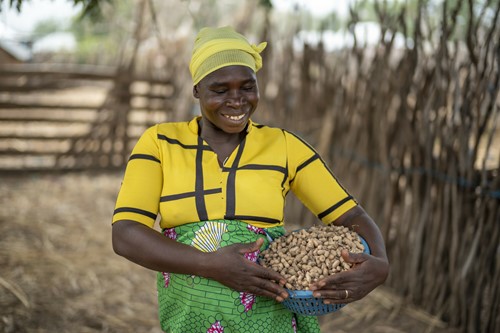
“We are keeping the money as a cooperative to buy more beehives”, she told us. “We were originally given four hives, and we want to add more ourselves, so that’s what we’ll use our money for”.
VTE group members negotiate amongst themselves to decide how best to spend their money - “as a cooperative, we all agree on how much we want to put in the pool to sell at Damongo, or Tamale, and how much we keep for ourselves at home.”
As a result of her growing incomes, Serina tells us “I am now able to send my children to school, buy clothes for them and also take good care of myself”.
More than an income – growing community spirit:
Throughout the lifespan of this project, it’s been inspiring to hear countless stories of the life-changing impact that enterprise groups are having for women.
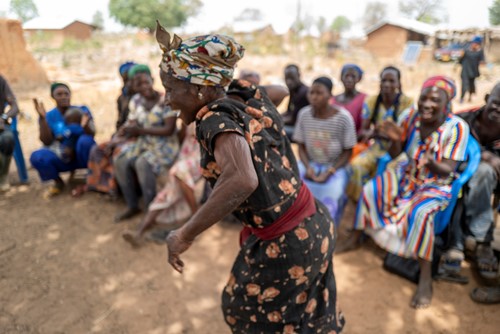
Working collaboratively has left women like Gladys feeling capable, connected and supported - “before Tree Aid brought this project, I was just a housewife” she told us, divulging the anxiety she felt prior to the project – “I didn’t know how to farm, and I had no other skills – joining Kanyitiwale Group gave me a voice. Because of this project, I've experienced love and respect - now, I'm always with friends.”
Thanks to your support, enterprise groups like Kanyitiwale (which translates as ‘Patience is Good’), are helping to transform women’s confidence and sense of belonging. A growing sense of pride accompanies their rising incomes too, as the stigmas previously associated with the use of money lenders are removed; “we no longer go through the embarrassment of borrowing money from others”, Serina told us. “Now, the whole world doesn’t get to see our nakedness. Now there is joy in our homes”.


